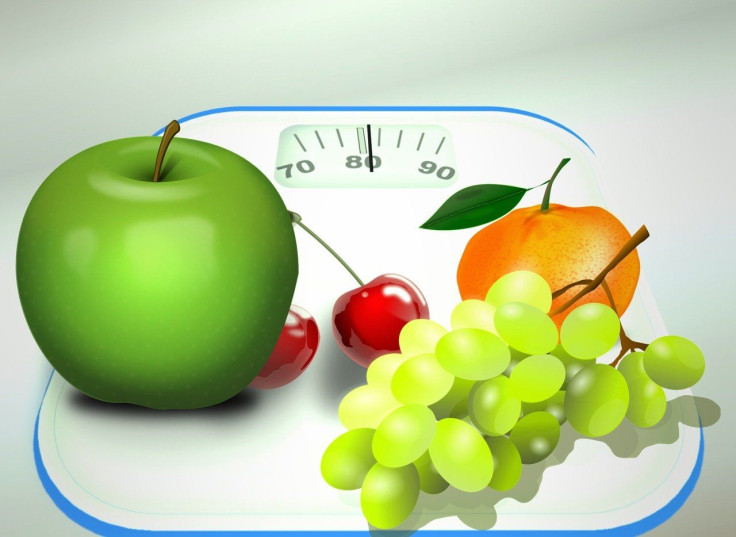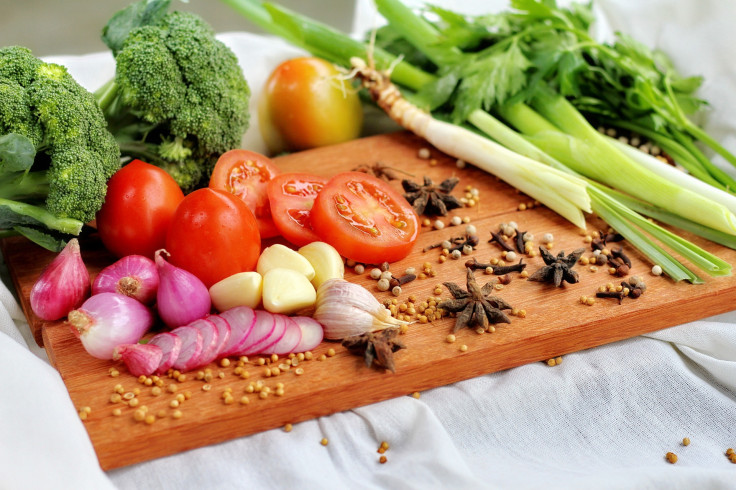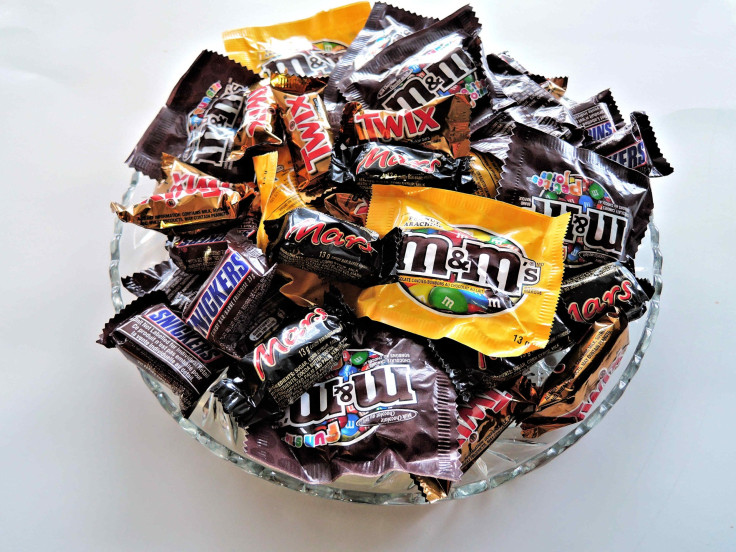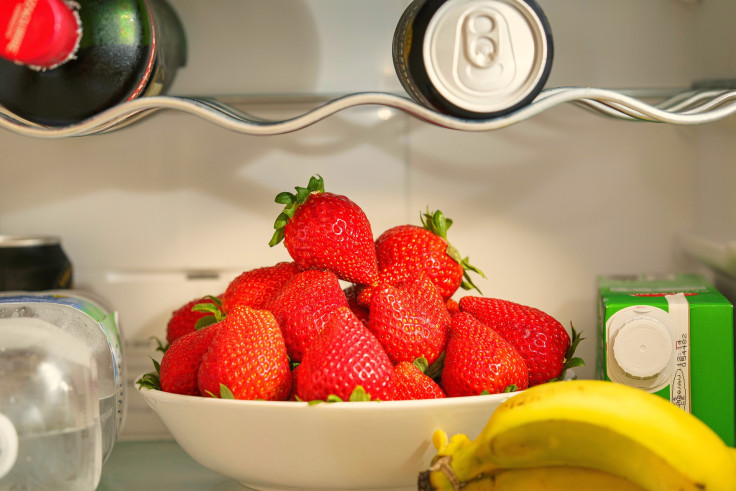10 Best, Most Effective Ways To Lose Weight Without Exercise

KEY POINTS
- Small changes to the accessibility of snacks may direct you to healthier options
- Those who keep a food diary lose weight twice as much as those who don't keep records
- Most people reduce their calorie intake by 70-80% by switching to air fryers
It's the post-holiday drive back to normalcy, and during this time, re-establishing your routine can be one of the tallest orders. After a couple of weeks of celebration and indulgence, it's time to think of the year ahead and see where you can improve yourself.
If one of your new year's resolutions is to lose weight but exercise is not your strong suit, fret not. There are effective ways to lose weight without heading to the gym.
Here are 10 of the best ways to try.
1. Add Color To Your Meals

The festive season may be behind us, but you can continue adding more variety to your meals to lose weight without exercise. Fruits and vegetables contain more water compared to other food groups, and this can benefit you because they will make you feel full without adding too many calories to your diet. Adding spinach to your smoothie or omelet, or putting tomatoes to your avocado toast can provide plenty of sustenance to start the day.
According to the Roger Cancer Center of the University of Michigan, the antioxidant lycopene, often present in red fruits and vegetables, may help to protect against certain kinds of cancers. Purple food items such as blueberries, blackberries, prunes, plums, pomegranates, eggplant and purple cabbage contain anthocyanin, which lowers your risk for cancer and heart disease. Examples of heart-healthy greens are broccoli, cabbage, bok choy and brussels sprouts.
Don't stop at breakfast. Carry this over to your lunch and dinner plates. Load up on fresh fruits and vegetables to give your eyes a feast. A bigger serving of non-starchy veggies will make you feel full without all the unhealthy calories of a same-serving plate loaded with starch.
2. Tweak Recipes To Lessen Refined Carbs

One of your biggest enemies when trying to lose weight is the siren call of carbs. Carbs have a high glycemic index, which means they trigger an insulin spike that stunts fat loss. If you're a fan of Italian cuisine, you will crave that hearty serving of pasta or pizza from time to time. One way to continue to enjoy your beloved dishes without gaining weight is by changing the recipe to favor healthy ingredients over carbs. An easy example is to prepare a serving of broccoli with pasta sauce and some pasta or a thin-crust pizza with more veggies and fewer meat toppings.
For everyday meals, serve a portion of stir-fried cauliflower rice instead of grains or open-faced sandwiches with more veggies.
3. Eat On Schedule

While proponents of intuitive eating recommend eating only when you're hungry, if you're coming back from the holidays, this might have backfired because boredom may sometimes make you feel like you are starving. Studies reveal that boredom encourages food consumption.
As you're coming back from the leniency of the holidays, start to rebuild your eating schedule. Three big meals a day is the standard, giving enough energy to sustain you throughout the day. With this schedule set, you will know that it's time for a meal rather than relying on your emotions to tell you to grab a bite.
With this said, it also helps to eat at a designated eating area, with no distractions, so that you can savor the food in front of you and really take in what you are eating. According to research, those who eat while doing other things can be 17% heavier than those who don't.
4. Mind Your Liquids

You need healthy liquids, such as water, while liquid calories, such as your beloved sugary drinks, should be consumed in moderation.
When you wake up, you are coming from hours of not taking in water, so it would be a good idea to replenish all that lost water as you start your day. A glass of water when you wake up will help curb that initial hunger pang, which will then help you make better breakfast decisions. This glass of water can also contribute to you feeling full after a smaller breakfast. Drinking a glass of water before every meal can set you up to lose weight without exercise by helping with portion control. Drinking water in between bites will help you register what you are eating and avoid overindulging.
5. Know What Goes Into Your Body

Some insights into what goes into your body can help a lot in making better decisions for your health. If you tend to snack throughout the day, you may not notice how many additional calories you consume from small bites of a cupcake, a muffin, or sweets. That quick afternoon Starbuck fix might feel too routine to remember, but your body is getting loads of additional calories from it.
The habit of snacking may have even started during the holidays, with more food accessible at all times of the day. To combat the weight gain that this might result in, be more aware of your meals and snacks by starting a food diary. Katherine D. McManus, MS, RD, LDN, Contributor to Harvard Health Publishing, cited a weight loss study of 1,700 participants that showed twice as much weight loss in those who kept daily food records compared to those who kept no records.
This food diary will give you something tangible to look at and keep you accountable for your health. Keeping track of your food consumption should not be confused with the unhealthy obsession with counting calories. While you aim to be more familiar with your eating habits, there is no need to obsess over how much fat goes into the cooking oil or salad dressing.
6. Give Yourself A Break

Eating and sleeping have two things in common: they affect your emotions. When you are tired and not getting enough sleep, you tend to make unhealthy eating decisions. Moreover, when you have an irregular sleeping pattern, it may throw off your hormones and result in hunger pangs. Plus, if you're asleep at a reasonable hour, there will be no opportunity for late-night snacking!
7. When It Comes To Junk Food, Think Portion Over Restriction

A restrictive diet is one of the least effective ways to lose weight simply because it opens the possibility of overindulging. Rather than completely saying no to junk food, give yourself the flexibility to try a handful of it sometimes. This gets rid of that feeling that you are not able to eat what you want. Instead, be mindful of how much junk food you are taking in. Rather than eating a whole burger, savor a few bites. Rather than finishing a bar of chocolate, a small piece should still satisfy your sweet craving.
8. Make Healthy Ingredients And Snacks More Accessible

We eat what we see. As visual creatures, we gravitate towards food that is easily more accessible. Knowing this, you can trick your mind into eating healthier. If you look in your pantry or fridge and the first thing you see are fresh fruits, you will be more accustomed to snacking on them instead of looking for the leftover pizza deeply buried in the back. It's pretty simple: leave the healthy snacks and hide the unhealthy ones to add some friction.
If you must have unhealthy snacks, keep them in smaller portions. According to a joint effort between the Google Food Team and the Yale Center for Customer Insights, small changes to the "choice architecture" may direct you to healthier options. In a field experiment done in one Google microkitchen, swapping out bulk M&Ms with individually wrapped smaller portions resulted in a reduction in the average serving by 58%, from 308 calories to 130.
It's even better if you pre-plan your healthy snacks so that you can just reach for them and consume them without worrying about cutting, peeling, or prepping. The easier it is to eat them, the more appealing they will be.
9. Understand Your Emotional Cues

Lack of sleep is just one of the triggers of unhealthy eating habits. Stress, anger, or sadness can all become emotional cues that trigger overeating, as well as undereating. It helps to understand and process your emotions so that you can uncouple them from the emotional hunger you are feeling.
For instance, if you feel lonely or sad, you might want to go for some ice cream. Experts recommend understanding your emotional cues and planning a response to them that does not involve food. Taking a walk, playing with your pets, watching a movie, or even cleaning the house can all become productive and fulfilling responses that do not involve eating.
10. Put The Air Fryer To Good Use

Some food options are just too good to pass up. If you can find healthier ways to prepare them, you will feel better about eating them without gaining weight. French fries, for example, can be prepared using an air fryer rather than a deep fryer. Dietitian Ariana Cucuzza, RD, said most people reduce their calorie intake by 70-80%, on average, by switching to air fryers. Crispy chicken tenders or chicken wings can be prepared the same way. You don't have to settle for bland and tasteless food just because you want to lose weight.
© Copyright IBTimes 2024. All rights reserved.





















